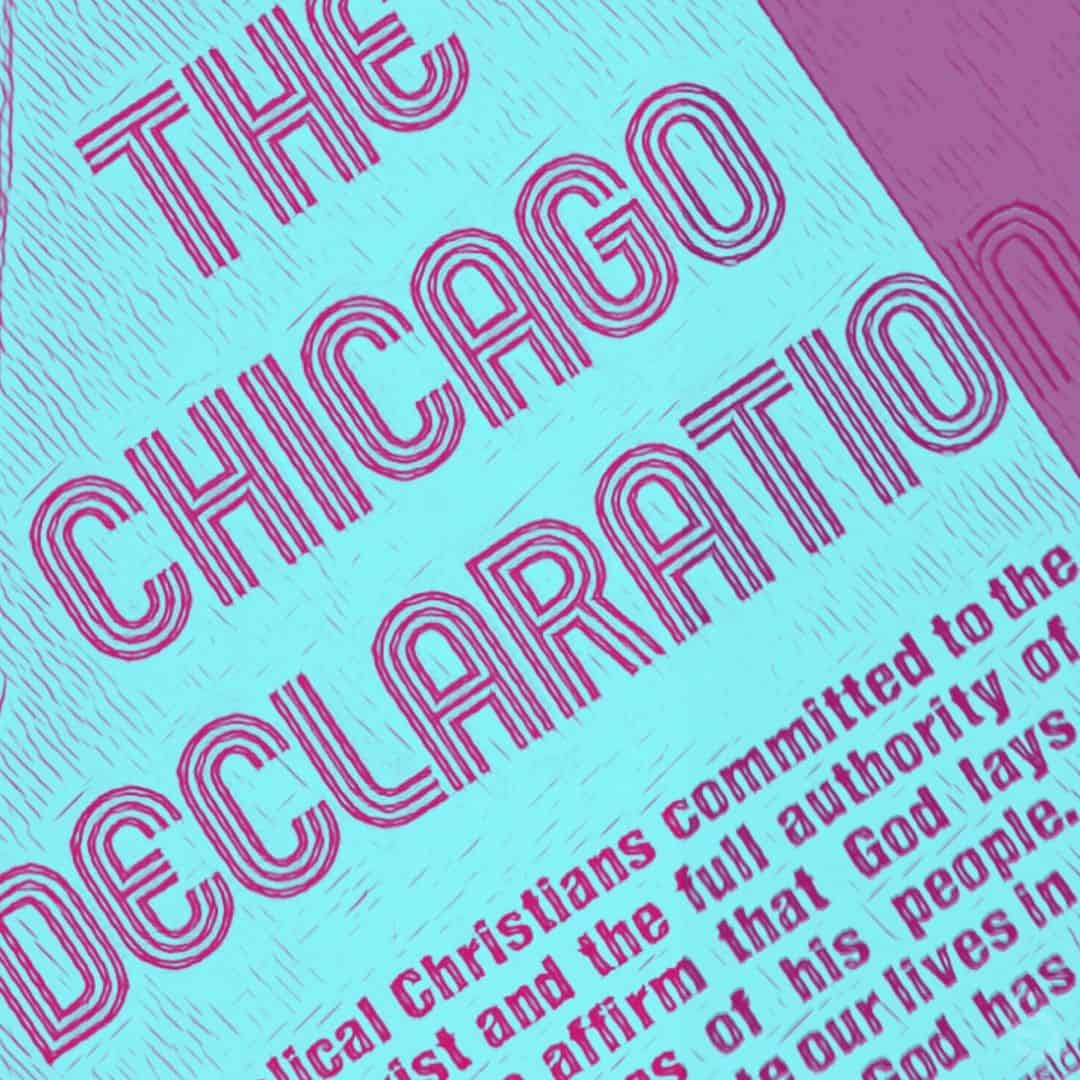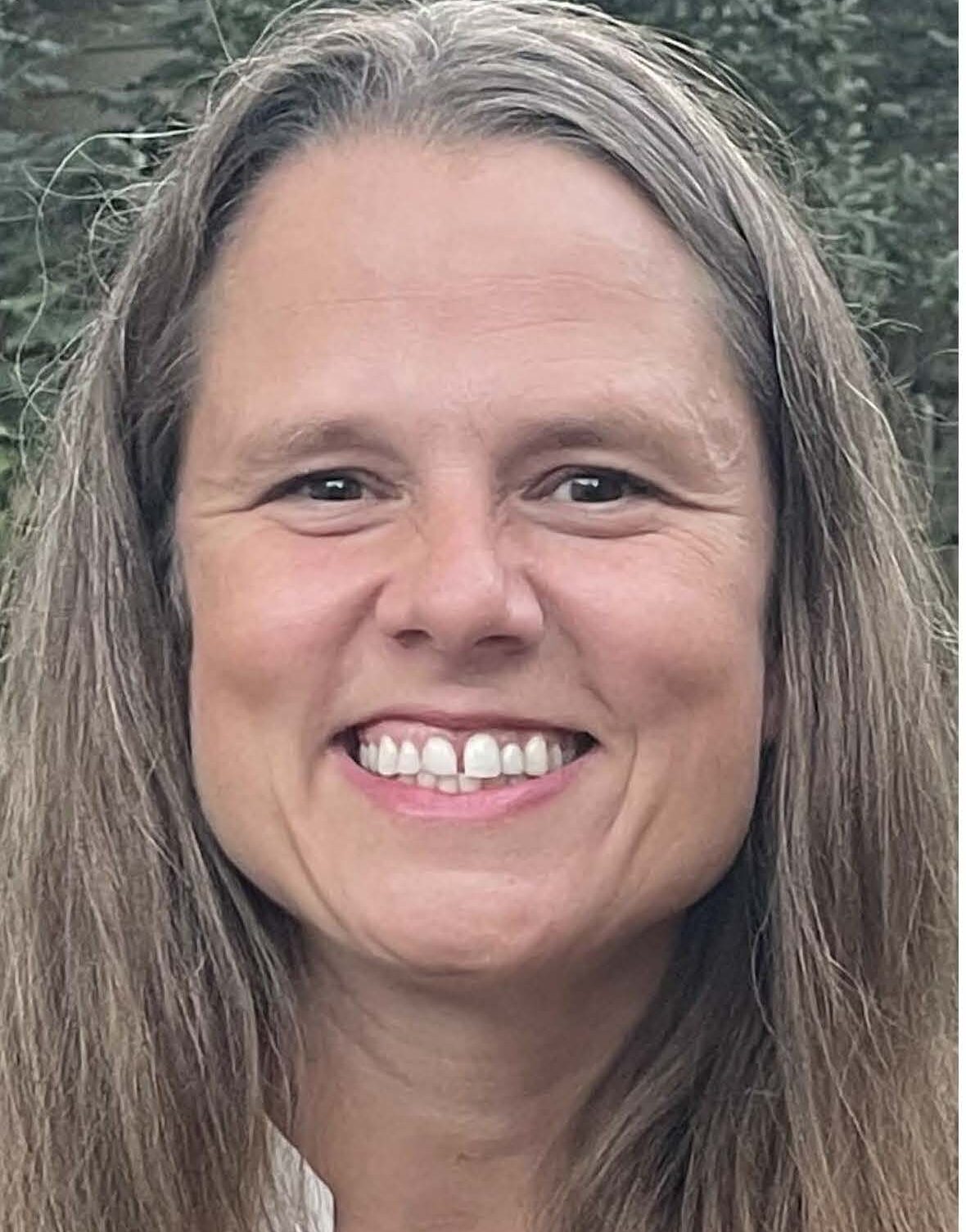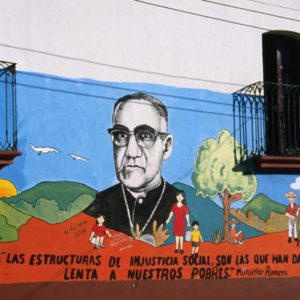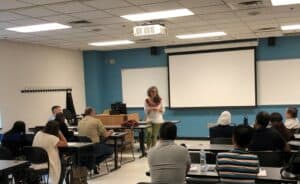 The Chicago Declaration Series is a celebration of the 50th anniversary of the Chicago Declaration of Evangelical Social Concern, a document drafted in 1973 by several evangelical faith leaders, and signed by 53 signatories. Concerned with what they saw as a diversion between Christian faith and a commitment to social justice, they wrote the Chicago Declaration as a call to reject racism, economic injustice, violence, and sexism. Under the leadership of Ron Sider, the Chicago Declaration became the founding document for Christians for Social Action. This month, we will highlight essays in remembrance and celebration of the importance of our founding document, beginning with this Q&A with Dr. Amy Reynolds, Associate Professor of Sociology at Wheaton College, which houses the archives of both The Chicago Declaration and Ron Sider.
The Chicago Declaration Series is a celebration of the 50th anniversary of the Chicago Declaration of Evangelical Social Concern, a document drafted in 1973 by several evangelical faith leaders, and signed by 53 signatories. Concerned with what they saw as a diversion between Christian faith and a commitment to social justice, they wrote the Chicago Declaration as a call to reject racism, economic injustice, violence, and sexism. Under the leadership of Ron Sider, the Chicago Declaration became the founding document for Christians for Social Action. This month, we will highlight essays in remembrance and celebration of the importance of our founding document, beginning with this Q&A with Dr. Amy Reynolds, Associate Professor of Sociology at Wheaton College, which houses the archives of both The Chicago Declaration and Ron Sider.
Tell us a bit about your role at Wheaton and your interactions with the Chicago Declaration and other materials around that event.
Sure, I’m an Associate Professor of Sociology at Wheaton College and came here in 2010. I don’t often do a lot of archival research in my work, but given that Wheaton has these archives of Christians for Social Action (formerly Evangelicals for Social Action), and that we’re coming up on the 50th anniversary, I was thinking, “What is some way we can honor having these documents here?” Given the importance of the Chicago Declaration for a lot of social engagement today, it seemed like there was an opportunity to dig into what we have and better understand the significance of the document.
How would you describe the Chicago Declaration and how it came to be?
Different people probably would have different takeaways. I went in thinking, “Let’s look at this 1973 document.” But now I see the Chicago Declaration as spanning more years. It was issued in 1973. But then they met in 1974 to discuss the proposals of how they were going to live it out. And then they met again in 1975 and more after that, where they’re fleshing out these things together. A lot of the substantive proposals that address the particulars of how to advocate for women’s empowerment or economic simplicity or other justice issues happened later. I think of 1973 as the start—they felt they had to get together and issue something. I think they thought about it as just a start as well—the beginning of figuring out what it means to live into Christian advocacy on these topics. It was about engaging the social moment. I do think that political moment really galvanized it. Which I think is why it’s interesting now, 50 years later.
With historical moments like these, knowing who is leading them can sometimes be important for understanding where the movement goes ultimately. Have you come across anything that indicates how this group decided who to include in the room?
I agree—understanding this is so important. They often use this language of “we,” so we’re left wondering, “Who is we?” I think I might discover more about how the original signers of the Chicago Declaration were selected and invited as I review Ron Sider’s papers in our archives. My sense is it was a social network of sorts—a group of white Christian men who knew each other, some kind of connected with the Christian college academic universe. I think they wanted it to be a diverse gathering, and were focused primarily on denominational diversity and generational diversity. It seems it really was their connections and recommendations of who to include that led them to the group that together formed the Chicago Declaration.
Is there anything that you would highlight that has stood out to you or that you’ve really been delighted or maybe surprised to learn as you’ve looked through the archives on The Chicago Declaration?
Yes, a couple of things. As a Christian college professor, I’m reading these documents and I’m noticing Ron Sider was talking with people in perhaps similar situations that are saying, “Christian witness and discipleship is not where it should be. Christians are not living the gospel.” The signers were coming at this very much from a Bible-centered, prayer-centered place, saying, “What are we called to do?” I’ve known that, but reading it, there’s a sense of illumination that these are people who just felt convicted to do something—convicted to speak. And they were doing this all in their free time and with no money. Then they meet over Thanksgiving weekend! If you asked me to come to some meeting over Thanksgiving, it would be a “no.” I’m hanging out with my kids, right? Their conviction really comes through to me—the personal cost of saying, “We’re gonna do this at Thanksgiving, and most of us are paying our own way to get there, because this moment demands it.” In their vocations they were all just trying to say, “How do we make a difference?” And they were volunteering their time and often their money to do that. That is impressed upon me in document after document. I get a sense that there’s a lot of humility and willingness to learn and dialogue among participants. I think it comes through just in the way they talk with each other in their letters and invitations for revisions and feedback. They were all bothered enough that they wanted to figure it out together, and there was a sense of urgency about it. That’s how a lot of these movements start. They’re imperfect, but there’s such good that can come of it through that growth.
Can you share a little bit on some of the outcomes that you’ve seen from the Chicago Declaration. Have you seen any historical threads that have carried forward?
There are a lot of groups impacted by this in different ways. I’m struck by the reality that this document was written 50 years ago, and probably half the stuff they say, you could say the exact same way today. They start wanting to talk about militarism, economic inequality—those are kind of their big ones—and then racism and sexism as well. All of these are issues people are still talking about now. In today’s world, some of these topics get considered as “woke” topics—but these same topics were addressed in the Chicago Declaration 50 years ago, and they were very concerned with biblical orthodoxy. They thought prayer was the first step. Nobody would question their evangelical credentials! They’re talking about these things that now, when they come up 50 years later, people might accuse you of abandoning our historical faith. The issues they are bringing up are all issues that are alive today. Maybe there’s been some progress, but they’re all kinds of things about which we can say, “Oh, this isn’t that different.” In terms of legacy, I think you begin to see an evangelical left emerge out of this, even though this initial gathering is nonpartisan. An alternative to the Moral Majority was created in the 1980s that the Chicago Declaration helped lay the groundwork for. There is a long history of Christians wrestling with these topics—some of which we see here, and some of which was well before this meeting. And so it captures a glimpse of this Christian wrestling with social issues in the 1970s.
Would you say that the Chicago Declaration leaves us a kind of a testimony of how we can continue wrestling with these issues as Christians?
Yes, I think that is a really good way to talk about it. We don’t always see, in the archives, all the wrestling that takes place. You see kind of the aftermath—that’s how you get the pieces. As a college professor, I think about how we see this legacy with Christian college students. Most of them aren’t coming in having heard of this document or necessarily having heard robust explanations of a holistic gospel that addresses these things. The topics have been so bifurcated. It’s the social gospel, or the inerrant authoritative Word of God. And they wonder, “How do we have both? Can we have both?” We’re talking about the same things and we’re still having the same conversation. There are probably some ways we’ve moved forward, but then you get political debates over things like Critical Race Theory or just even teaching accurate history. And you see Christian support for some of those things. It would be interesting to see how the Chicago Declaration signers would respond to some of that—what they would say.
It does seem to me when they were talking—it was 1973. That’s within a decade of the height of the civil rights movement? I can’t tell in the archives how much Black church leaders were involved in shaping these conversations. But I wonder, were the signers learning from, taking resources from the Black Christian church? In 2023, it’s easy to read this and notice that their social networks were largely a white evangelical male group that was coming together, and we struggle with the same lack of diversity today. White evangelicals are often not interacting and learning from Christians of Color as we should. No one can predict what would have or could have happened differently, but I think in the last 50 years, we’ve seen a kind of white evangelical shift to notice the need to follow or listen to leadership from Christians of Color who have longer histories in this work. In my mind, it seems like that would create a more vibrant movement going forward.
What else would you like to add?
I want to emphasize that the Wheaton archives are publicly accessible. If you can get to Wheaton, Illinois, these resources are for all of us, not just for Wheaton people. And many of the resources are available online. Not only are the CSA records here, but we also have records from a number of people connected with those records, oral histories of some of those people that were involved. There’s a lot of resources related to the Chicago Declaration. I think the more we engage the history of what’s happened, what’s gone on, what things have worked or didn’t, the more we can benefit as we reflect on our own situations. As I read through old letters and proposals, I feel like I hear a bit of the voice of those involved. You see the humanity of the people who worked together on this. Ron Sider, and many others with CSA, passed these records on to let them be of use to all of us.

Amy Reynolds is an associate professor of sociology at Wheaton College, where she also coordinates the Wheaton Network Initiative for Gender, Development and Christianity. Her research broadly focuses on issues of gender inequality, international economic policy, development, and the role of religion in public life.


